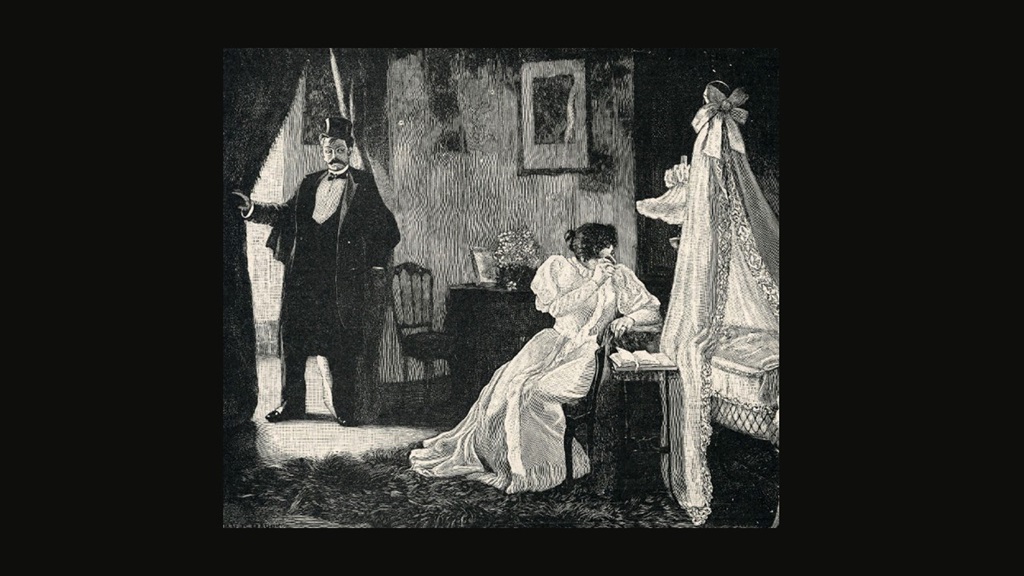.
Mistaken Identity
I never really found out who you are,
I only saw what I preferred to see.
I realise now it wasn’t meant to be.
I thought you were my one true shining star,
My cordon bleu, champagne and caviar
But really you’re a lukewarm cup of tea.
I thought you cared: you soon enlightened me.
I should have just admired you from afar.
It really was a silly thing to do,
Dropping my guard to let you in my head.
You left such an unholy mess behind.
And now you’re gone, I look around and find
An empty wallet and an empty bed.
And still there is the question: who are you?
.
.
David Whippman is a British poet, now retired after a career in healthcare. Over the years he’s had quite a few poems, articles and short stories published in various magazines.















Interesting rhyme scheme. I really liked the title and could identify with the idea of “Mistaken Identity.” I am sure you are not alone in such thoughts of realizing that which is on the inside does not correspond with who we thought they were.
Given your otherwise deliberate attention to meter, I like the way you dropped your guard at the beginning of line 10. I also like the manner in which you address the absence in the room.
Thanks Bill. I think that slight irregularities in scansion can sometimes make a poem more interesting.
This is wonderful Italian sonnet with an unusual rhyme scheme in sextet.
I like sonnets that end with a question.
Thanks Roy. Yes, it’s a well-worn theme, that what we see is not what we get.
It may be a well-worn theme, David, but you’ve made much of it. Readers don’t have enough information to ask “who are you” with the speaker, but you the poet have provided a good character sketch of that speaker. A misled and disappointed lover, to be sure, but whose fault is that? Many repetitions of “you,” but there are more of “I” and “my.” For clarity, I’ll assign male pronouns to the ego, though you’ve written the poem such that either sex could be speaking. Admitting that he only saw what he wanted to see, he implies not that she deceived him, but that he didn’t really care to discover her. There’s no complaint of heartbreak, only the wallet and the bed are now empty. Self-absorbed, one might guess.
I really like what you’ve done with the cup of tea. Why is it lukewarm? Because he delayed over the drinking, seeming to care neither for the taste nor the social ritual! And of course the expression, “you’re my cup of tea” would have a familiar, domestic ring of satisfaction never achieved in this affair.
You’ve put this in a perfectly Petrarchan sonnet form, though the sestet cdeedc is an unusual “reversed” rhyme scheme. It’s certainly appropriate to have the rhyme for “you” as far away as possible from that final word. Altogether intriguing work.
Many thanks Margaret. You make a good point; we can complain at deception, but do we, in a way, actually want to be deceived? It’s such a natural tendency to persuade ourselves that the truth is what we would like it to be. Thanks again for your detailed take on this piece.
Nice to see a good sonnet, in carefully framed everyday speech, on disappointed love here, Mr. Whippman (or “love,” according to Margaret’s astute analysis). You moved me to try a briefer variant on the theme, but it doesn’t measure up to yours, either in quality or length.
I guess that, given the otherwise consistent iambic context (ellision in line 3 quickly subsumed in the flow), Mr. Harder was taking the accented 1st syllable in line 10 as a felicitous suggestion of the bad judgment the line alludes to.
Thank you Julian. I have to admit that the link between the irregular stress pattern of line 10 and the subject matter didn’t occur to me. But if it works, so be it!
David, I love “Mistaken Identity” (great title). You have brought a fresh eye to an age-old, tragic tale with some delightful lines – my favourite being: “I thought you were my one true shining star, / My cordon bleu, champagne and caviar / But really you’re a lukewarm cup of tea.” which made me grin from ear to ear. I know that feeling. I hope my reaction is in keeping with your intent. Thank you for this ray of Valentine sunshine.
Susan, your reaction is spot-on. Thanks as ever for your feedback.
Carl, thanks for the feedback. Glad you liked this poem.